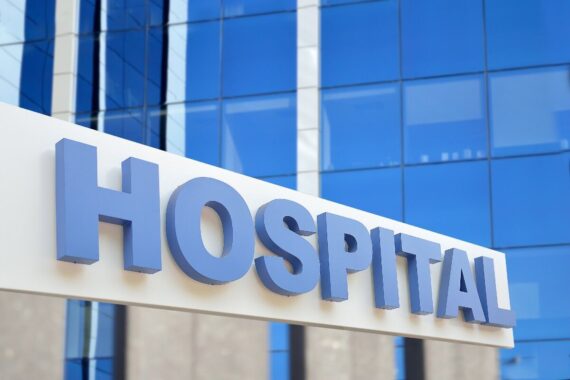GP workload concern as private hospital admissions reach ‘record level’

Private hospital admissions reached record levels last year, with more people choosing to pay for their treatment, according to new data.
GPs told Pulse that this is due to long waits for treatment on the NHS, and it is a worrying trend as it is generating more work in general practice.
The latest figures from the Private Healthcare Information Network (PHIN) – an independent, not-for-profit, Government-mandated organisation – show that there were nearly 900,000 admissions to private hospitals in the UK in 2023.
This was more than any previous year, and 7% higher than 2022, which was also a record year for private hospital admissions.
But GPs said that patients treated privately are often being sent back to their GPs with requests for investigations, medications and ongoing care that usually would have been done in secondary care.
A Pulse survey last year also found that more than four in ten GPs say their workload has increased as a result of people using more private healthcare.
According to PHIN, the highest peak in admissions funded by private medical insurance came in the final three months of 2023 when 161,000 private hospital admissions were funded this way.
And self-pay admissions were also at their highest ever level in 2023, peaking in the first three months of the year (73,000 admissions) before reducing slightly, but staying well above (39%) pre-pandemic levels.
Lancashire and Cumbria LMCs chief executive Dr Adam Janjua told Pulse he has seen and heard of a rise in patients going private in both his role in the LMC and at his practice.
He said: ‘In Fleetwood where I work it’s a bit less due to it being a deprived area so not as many going private.
‘But from an LMC point of view we are seeing a steady rise in private patient workload in practices. This is both from in country and abroad.
‘Lots of work is being shunted onto GPs – in terms of prescribing and monitoring as well as follow. All of which is unfunded work being done for free.’
Surrey GP partner Dr Dave Triska agreed that patients choosing to be treated privately is ‘100% having an impact’ on GP workload.
He told Pulse: ‘As many private consultants don’t realise they can refer into the NHS, we get a workload transfer, or attempt to do so, of them saying “can you refer into x NHS clinic”. It’s a huge drag.’
Professor Azeem Majeed, a GP and head of the Department of Primary Care and Public Health at Imperial College London, said that similar requests from private providers can include prescribing unlicensed drugs or prescribing drugs without a suitable shared care agreement, which in turn ‘creates medico-legal risks for GPs’.
He told Pulse: ‘Whilst private healthcare can help some patients, it also adds to the workload of NHS general practices.
‘Private medical providers often request NHS GPs to make referrals, provide medical information about patients, organise further tests, issue prescriptions, and make onward NHS referrals.
‘These requests create additional clinical and administrative work for GP practices. There can also be requests to prescribe unlicensed drugs or to prescribe drugs without a suitable shared care agreement, which in turn creates medico-legal risks for GPs.’
Tower Hamlets GP Dr Selvaseelan Selvarajah told Pulse that this is adding workload to ‘already massively stretched’ practices.
He said: ‘Many patients are choosing private health care due to long delays for treatment in the NHS. This was an inevitable and natural consequence to the increasing waiting lists with many patients struggling. So, we must all be very sympathetic to our patients who are going private.
‘While many complete their episodes of care in the private sector, many more are self funding very expensive private appointments.
‘So they are coming back to GPs with requests for investigations, medications and ongoing care that would have usually been done in secondary care.
‘So, this is adding to the work of already massively stretched General Practice which is struggling with chronic under funding and under resourcing of GPs.’
PHIN collects data from the more than 600 private hospitals across the UK and also from over 10,000 consultants.
It published the data to help patients ‘make more informed decisions’ about their healthcare and ‘improve competition and therefore standards in the sector’.
PHIN’s chief executive Dr Ian Gargan said: ‘With NHS waiting lists at record levels, a growing number of people are looking for alternatives and choosing to use the private sector rather than risk prolonged waits and potentially seeing their health deteriorate.
‘The number of people using private medical insurance, or opting to “self-pay” for their procedure, has increased despite the difficult economic conditions over the past few years, demonstrating the importance people place on their health.’
Last year Pulse reported that more patients are paying to see a private GP due to longer NHS waiting times, with a private GP provider reporting a surge in the number of people requesting its services.
At the UK LMC conference last month, GP leaders said that GPs should have the ability to treat patients privately ‘in the same way that other clinicians can’.
Related Articles
READERS' COMMENTS [3]
Please note, only GPs are permitted to add comments to articles










is this even news
In other news, Bear becomes a catholick primate.
Sorry- no “k”.